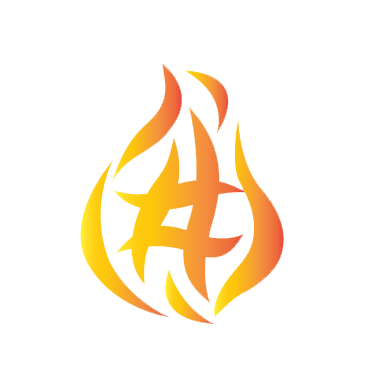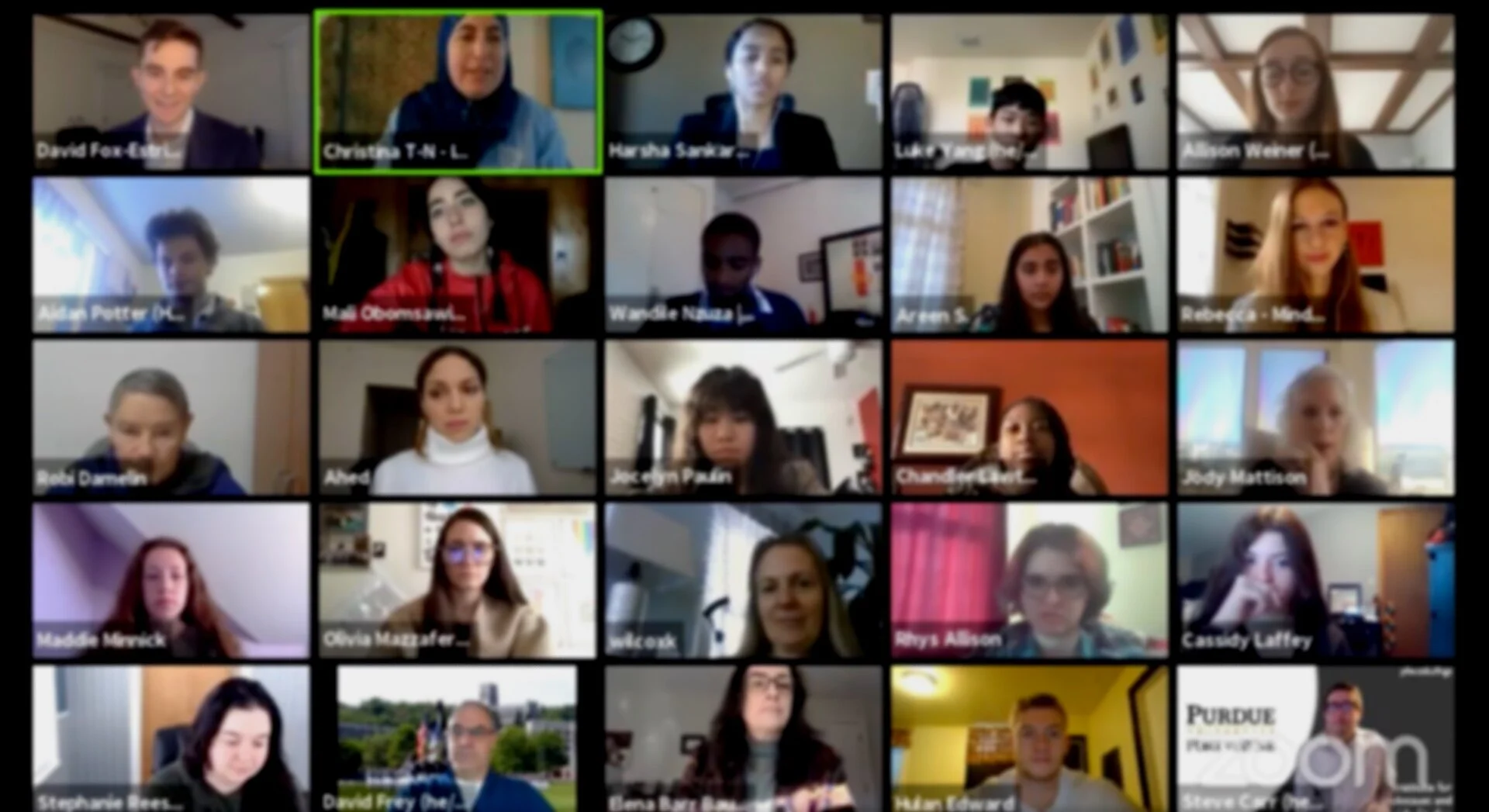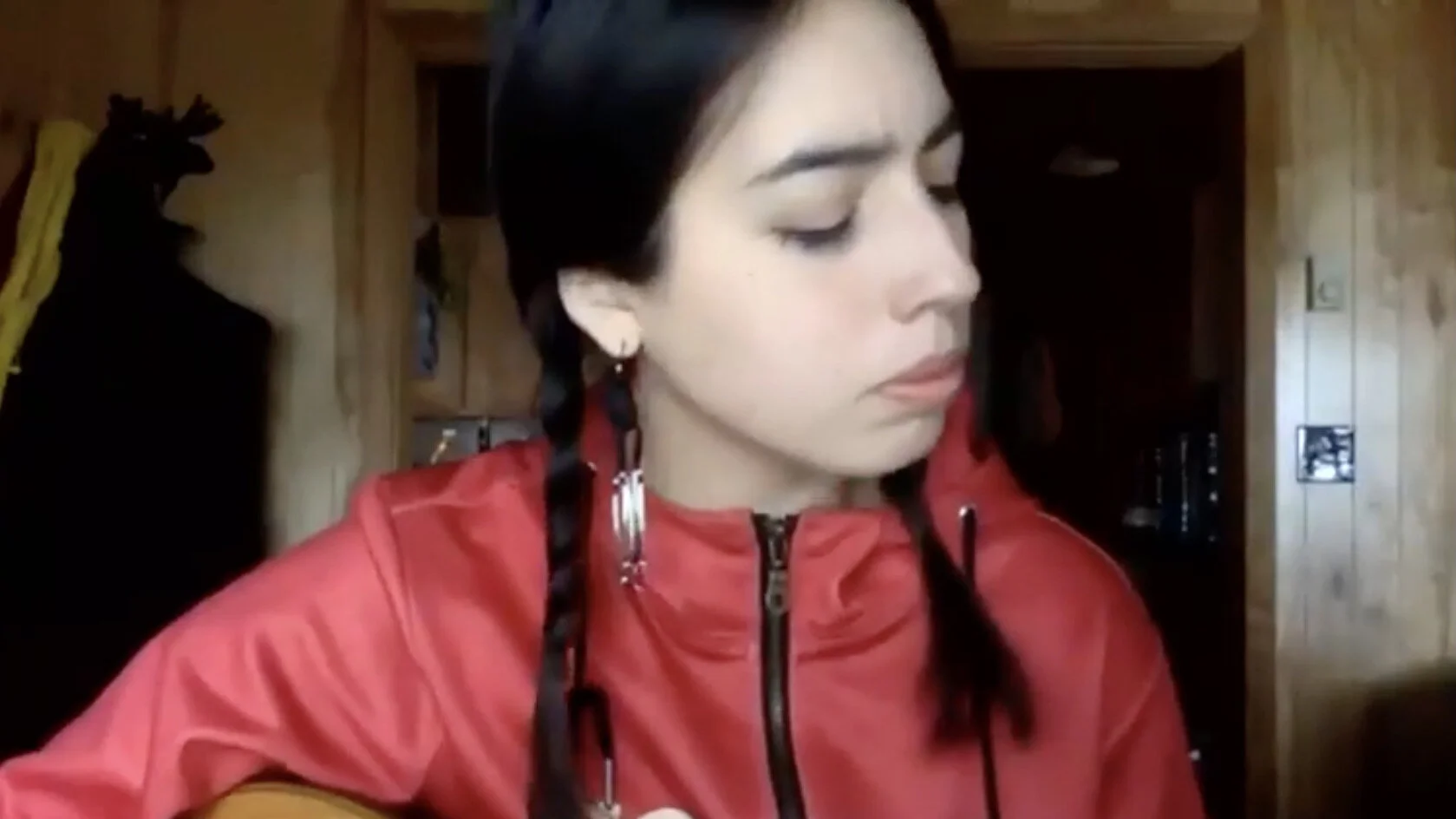By Hulan Edward, Kate Leonard, and Luke Yang, TWR Youth Action Fellows ‘20
THIS PAST HOLIDAY WEEKEND, CHANGEMAKERS FROM ACROSS THE GLOBE GATHERED FOR THREE DAYS OF COLLABORATION THAT COVERED THREE DIFFERENT GOALS: TO GET INSPIRED, INFORMED, AND INVOLVED.
Day 1: Get Inspired
Over the holiday weekend, the Together We Remember community and fellows attended a virtual global allyship summit working to increase networks and strengthen relationships. Opening on Saturday, the summit featured several speakers, each with unique backgrounds and expertise, demonstrating the day’s theme: “Get Inspired”. Together We Remember founder David Fox-Estrin and sponsors offered short introductory remarks before the speakers commenced.
The first speaker began by discussing the importance of land acknowledgments. Pointing out the need to respect indigenous sovereignty, she emphasized allowing the original peoples to maintain ownership of their land as a critical piece of activist work. She closed by performing a song that supported her message in an emotional and memorable way. Following this was a beautiful children’s performance with an amazing poem in the background. These children personified resilience and perseverance, showing how the arts can foster better communities and further education.
After the dance was the story of one of Syria's trail-blazing women. Her story served as a strong reminder of the recent and ongoing atrocities and the power that she held was tangible in her words. Upon the conclusion of her story came a joint talk by members of an organization working with forgiveness, reconciliation, and non-violence in the Israel-Palestine conflict. Despite the tragedy experienced by the speakers, who both had children killed, their lesson was a potent reminder about the need for humanity and empathy when dealing with all issues.
The first half of Day One finished with a reflection on the four years of the Trump administration’s immigration policies and the brutality that ensued. The speaker talked about the work she does preserving the stories of immigrants, saying “[the migrants] are the experts of their lives” and reminding us that it is our responsibility as allies to support immigrants, emphasizing the need for oppressed identities to be at the center of all activist efforts.
To start the second half of the discussion about the world’s collective complicity in the violence against the Uyghur people in China, the speaker proposed that even as global awareness has grown, most Western countries remain ignorant of the plight of the Uyghur. This idea displays one of the more common misconceptions of activism: complicity does not mean involvement, it can simply be ignoring or not learning about the issue to help.
Having heard the perspectives of many victims of these mass atrocities, the summit took a turn to allow us to hear from a former Neo-Nazi. Telling of her path out of extremism, her message of avoiding echo chambers alongside calls for justice and accountability resonated strongly with the attendees.
Turning again, the next speaker discussed the annihilation of the Rohingya people and her journey as a political prisoner in Burma. Her emotion-packed story showed the impact that these atrocities have on a person’s life. She finished her story by calling for people to use their privilege for activism and fighting to end all forms of identity-based violence, which took us right into the last speaker, who concluded with an original poem that brought Day One full circle. This poem carried his truth, and the strength of all the previous speakers, to end on a truly inspirational note.
To conclude day one, the summit was led through a powerful restorative and reflective meditation, and a group of Together We Remember Fellows performed a poem that had been co-composed by the group. This poem conveyed what ‘Never Again’ means to the Together We Remember community while wrapping up Day One and preparing the group for Day Two: “Get Informed.”
Day 2: Get Informed
If there was one main takeaway from Day Two of the Global Allyship Summit, it was that mindfulness is key to making positive change. Speakers remained true to the theme of the day by encouraging participants to better understand how they engage in their work. Genocide and atrocity prevention work carry a lot of emotion with it. With this emotion can come self-doubt and frustration. Being more mindful can help individuals make more effective strides when engaging in human rights work.
Day Two speakers conveyed this message by asking: “What are you pouring into other peoples’ cups?” If you have murky water in your own cup, you will only pollute the cups you are pouring into. In other words, you can end up hurting those you wish to affect positively. We have to take care of ourselves and make sure we are self-aware before we make an impact.
This theme of self-awareness carried through the entirety of Day Two. Speakers challenged participants to center themselves by thinking about their role in their work. A good place to begin is to analyze what is authentic to yourself. You should look at what it is that motivates you in your work. Think about what you are passionate about and what actions you have taken to mobilize yourself to make an impact.
Attendees of Day Two of the summit were frequently tasked with self-reflection. This practice is essential in rationalizing self-doubts. Success is often considered a linear process. When you fall into this line of thinking, you may feel like you are letting yourself down, as well as others around you. Speakers fought this misconception by emphasizing how failure is integral to success. Recognizing this will ensure that your work will not be held back by self-doubt.
The second day also emphasized the importance of understanding the world around you. Speakers brought different focuses and perspectives but highlighted how an awareness of various instances of human rights violations can inform your individual efforts. During a turbulent time in history, it is easy to feel overwhelmed by the amount of human rights issues that need acknowledging. Day Two speakers reminded participants that you will not undermine one community by standing with other communities. All human rights work is important work.
Understanding the past is equally important. Work within genocide and atrocity remains as urgent as when this century began. The second day of the summit stressed how our responsibility is to use the past to show that the denial of human dignity will not be overlooked. This points to the significance of collective memory in human rights work. By commemorating atrocities through collective memory, you can interconnect the past and present to prevent future harm.
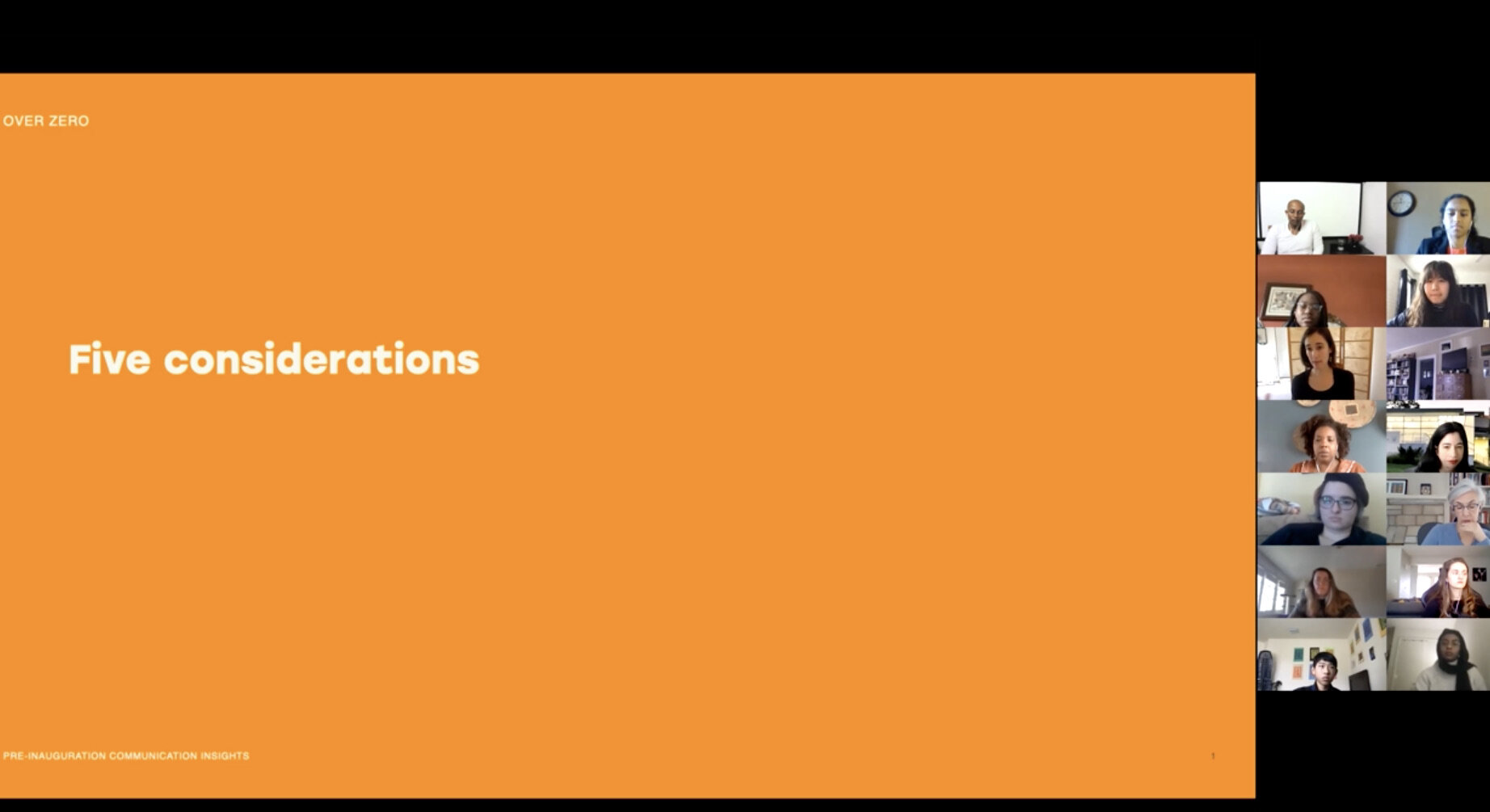
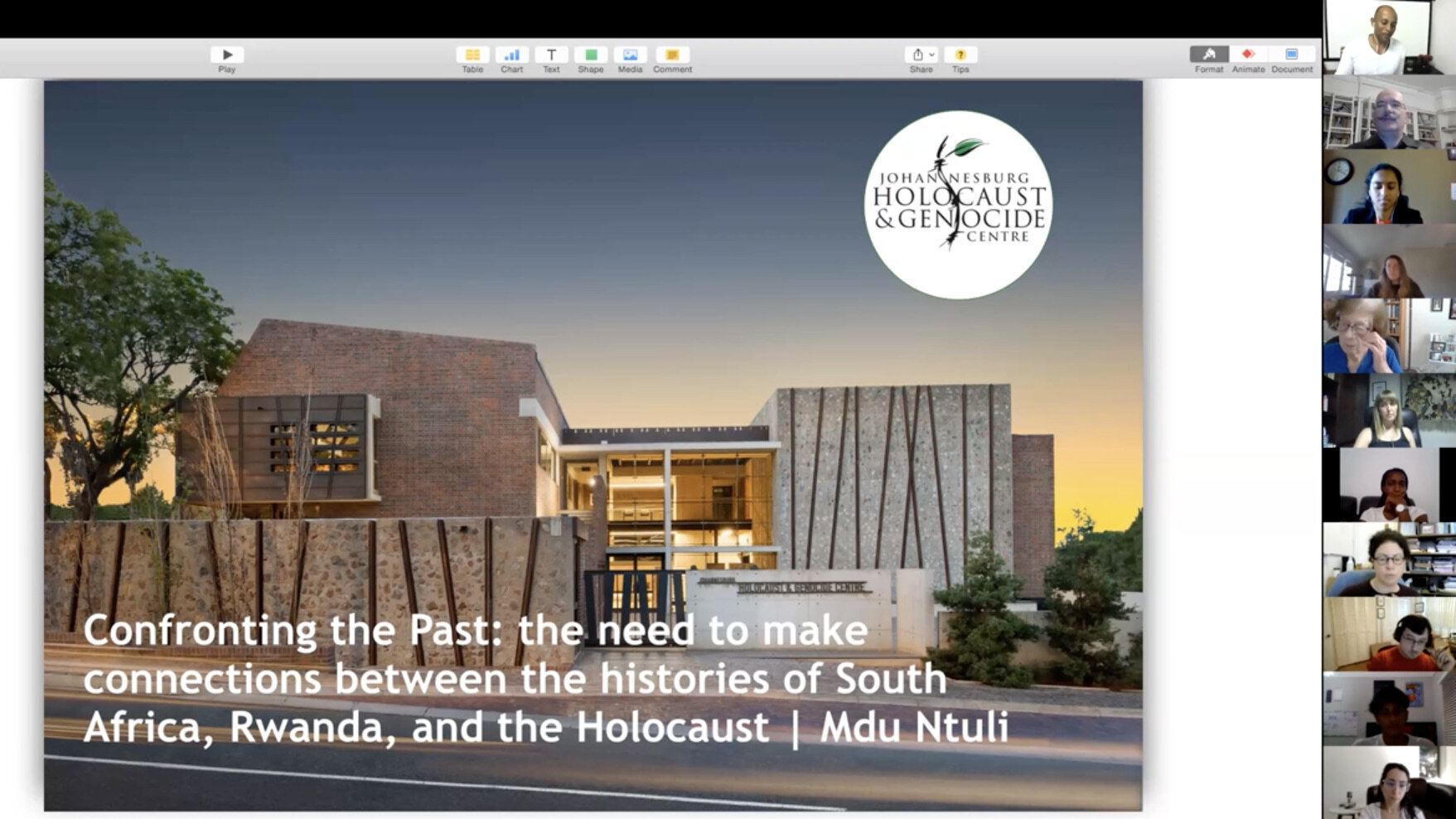
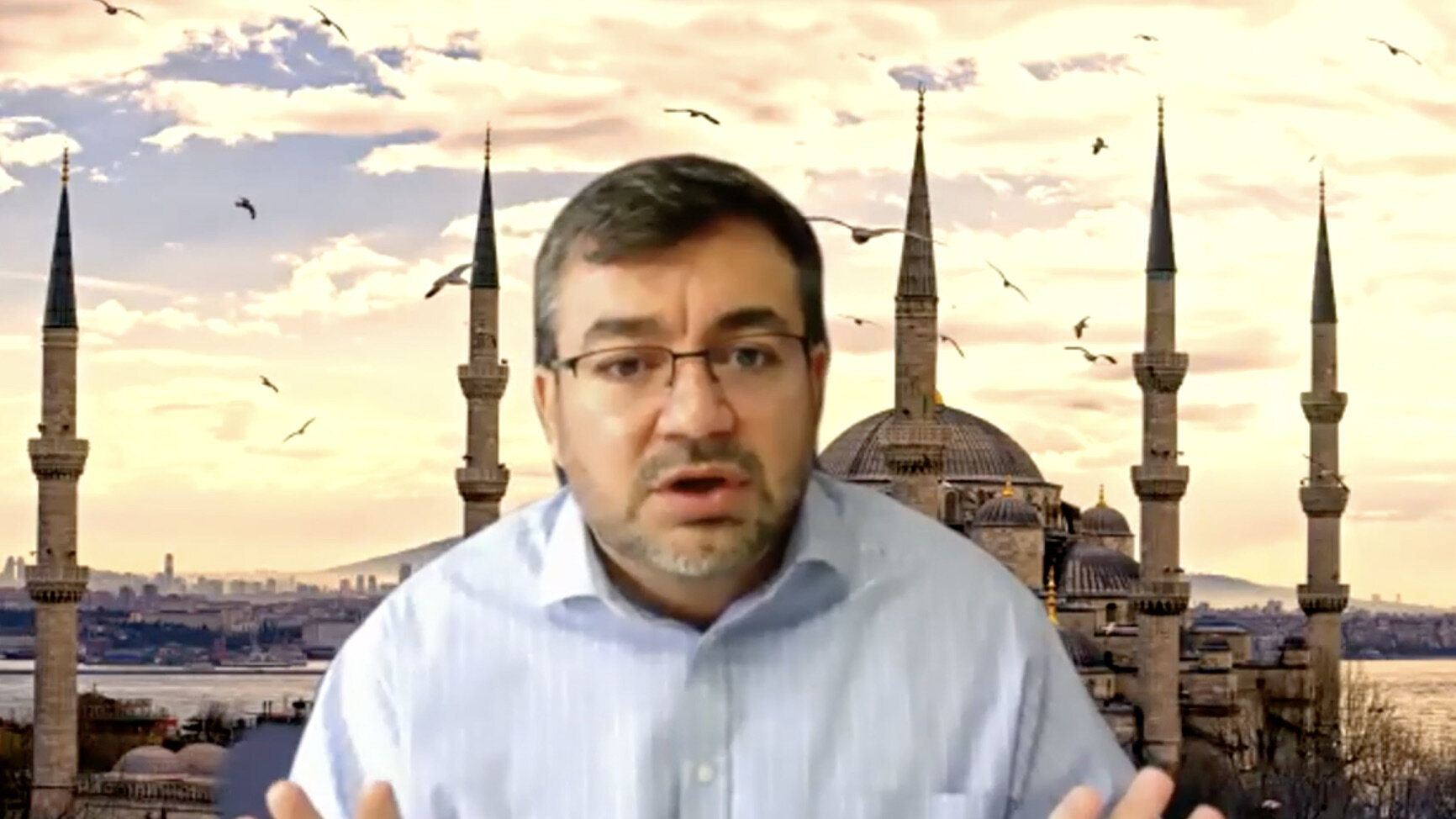
Day 3: Get Involved
True to its name, Day Three was all about how summit attendees could work with TWR to amplify the voices of each and every group we represented. It was fitting that the final day of the summit happened to fall on Martin Luther King Jr. Day, a holiday that celebrated one of the United States’ most influential civil rights leaders of all time. To pay homage to his memory, the program began by playing one of Dr. King’s speeches. The words of Dr. King brought into startling clarity just how relevant the lessons he taught remain today, especially during this turbulent time in our lives. It raised the question: how do we ensure that Dr. King did not struggle, did not fight, did not die in vain? The answer was simple: by taking action.
After the opening presentation, a representative of Purdue University Fort Wayne said a few words. While brief, his ideas resonated strongly with the audience. Memorably, he said that concerning the alarming revival of violence both in the U.S. and around the world, “we are not helpless in fighting this resurgence.” After the talk, we dove headfirst into a crash course on how TWR operates. A key idea prevalent throughout the entire day was the end goal: Mission 2048. The hope is that by the year 2048, there will be no new names to ever add again to the list of genocide victims.
We gathered in small groups to discuss our ideas on how to make that happen. The conversation helped spark thought in how we could grow TWR’s reach through social media and young people in particular, how we could grow our network as a whole to uplift each individual voice, and how we could sustain ourselves as an organization, in terms of both presence and finances. On the topic of money, an opportunity arose at the summit for individuals present to apply for TWR Ignition Grants -- a grant of up to $5,000 USD to help make an organization’s ideas possible.
As the summit drew to a close, we did one final exercise. Through the questions, “What can you offer yourself? Your organization? TWR as a whole?” we each analyzed our goals, and found a clear thought process to prioritize what we felt was most important. This was a remarkably poignant way to conclude what had been an equally extraordinary three days. We each left with a clear mind; full of information, ideas, emotions, but clear nonetheless. We knew what we had to do, and we knew how to do it.
The final act of the program could easily have been an astonishingly breathtaking event all on its own, but in the context of just how incredible the three days had been, it was the perfect finale to the summit: “Hallelujah”, performed by TWR Student Director Wandile and his guitar. The song washed over us like a warm wave of love, blanketing us in warmth. When the last note faded into the ether, that was it. The summit was over.
Except it’s not. While we are no longer all present in the same Zoom room like we were during those magical 3 days, our work remains interconnected. We must continue to honor those that died in the atrocities we now work to prevent, the survivors that bravely told their stories, those struggling so valiantly right this moment to save humanity. Our work does not stop. If there is one thing that the summit made clear, it’s that we’re all in this together. One way or another, come 2048, the pen of identity-based violence will have written its last name. The list of victims will become a fossil: perfectly preserved, but never to grow again. At long last, the words we hear so often will ring true, loud and clear: Never forget. Never again.
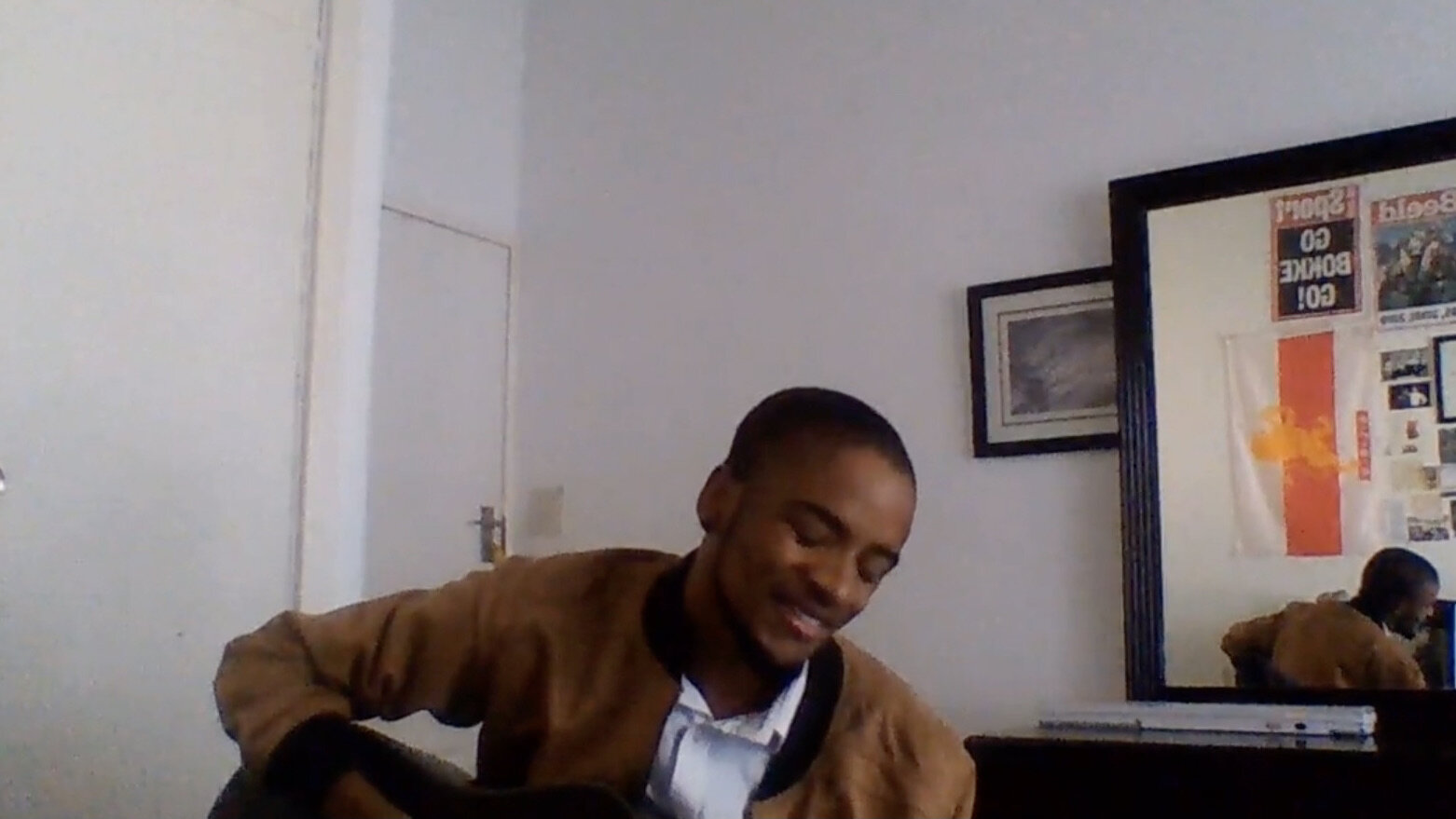
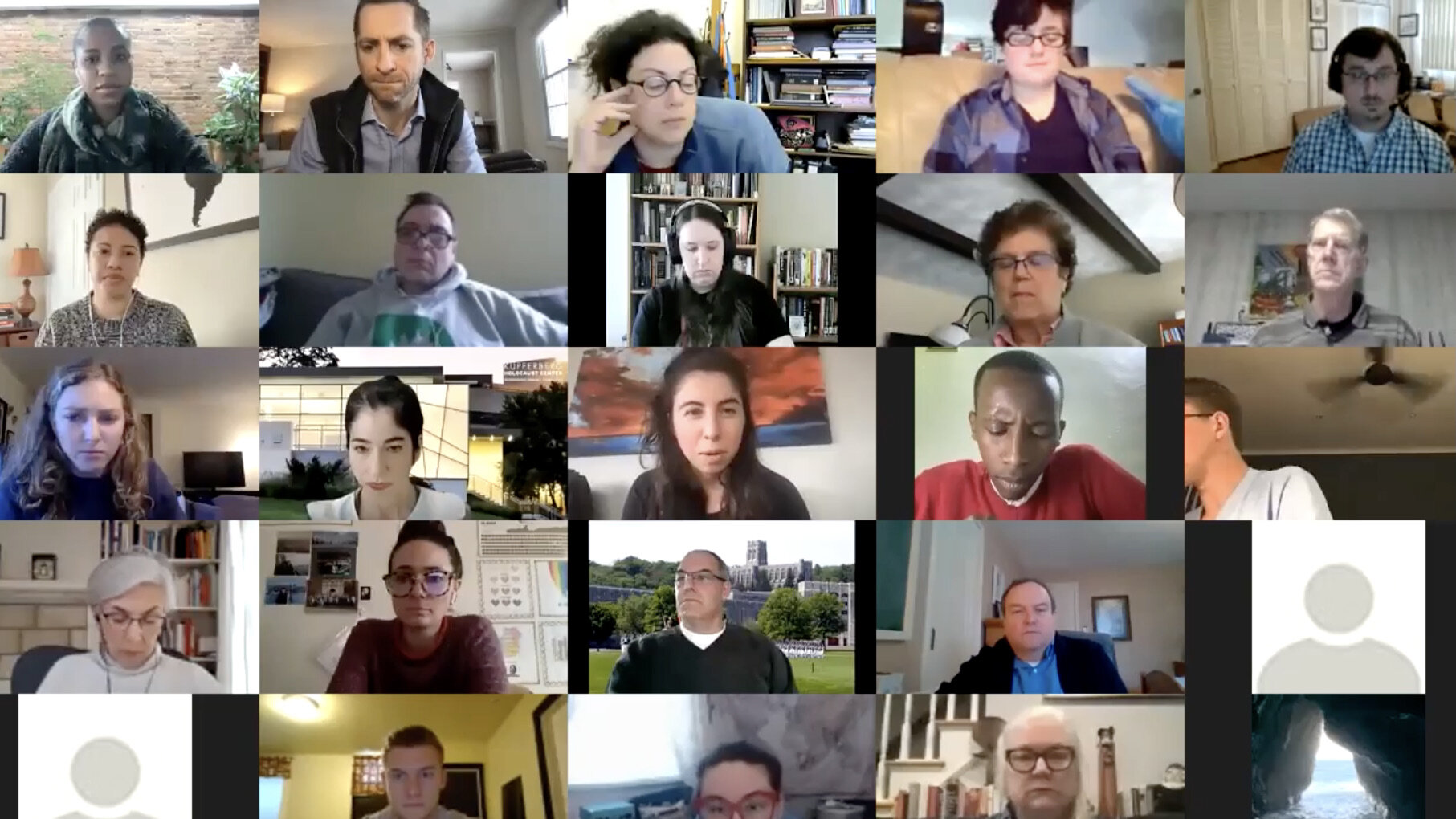
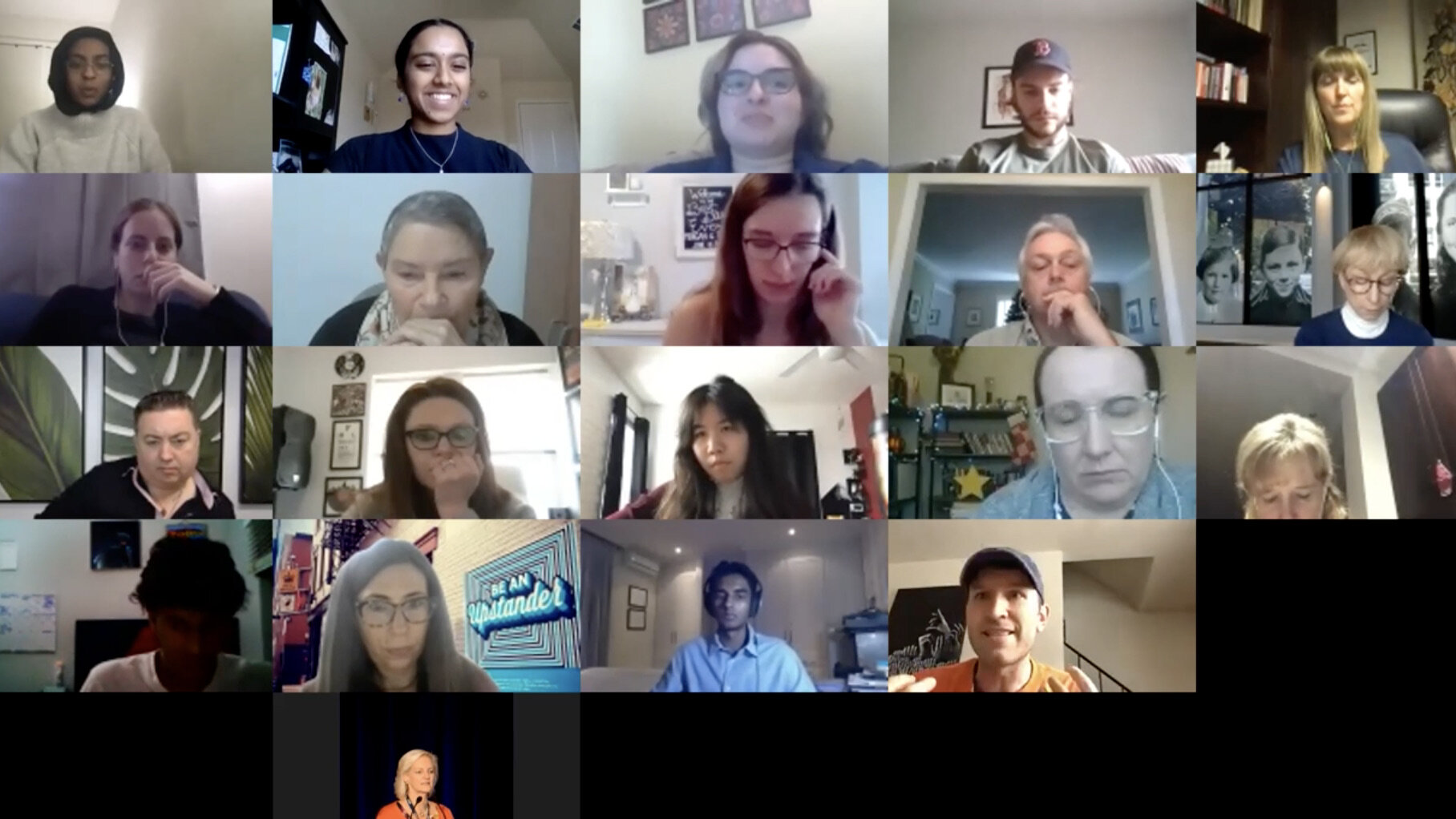
Hulan Edward is a second-year student-athlete at Oberlin College and Youth Action Fellow at Together We Remember. He plans on majoring in Psychology, while minoring in Religion and Politics, focusing on helping the world through better understanding people’s religious and political beliefs.
Kate Leonard is a third-year student at Fordham University in the Bronx, NY studying Humanitarian Action and Italian. She is a Youth Action Network Fellow and Executive Editor of Together We Remember’s blog. Her passion for human rights has inspired her to engage in activist work relating to criminal justice and migration.
Luke Yang is a sophomore at Miami Palmetto Senior High School. He is a Youth Action Fellow and Managing Editor of the Blog. He is also a Youth Ambassador for the Miami Beach Holocaust Memorial, through which he works to put on Holocaust remembrance programs each year.
